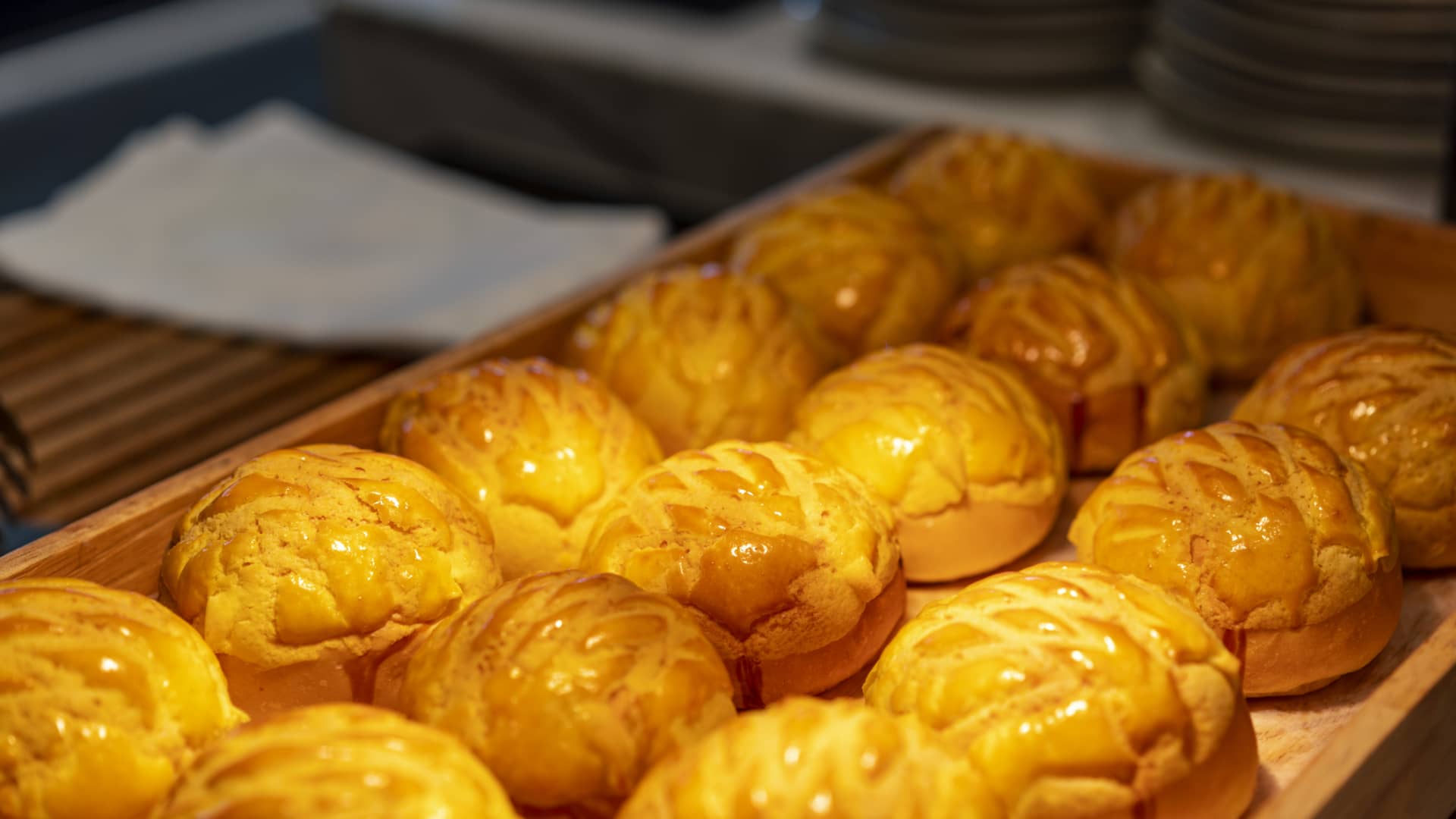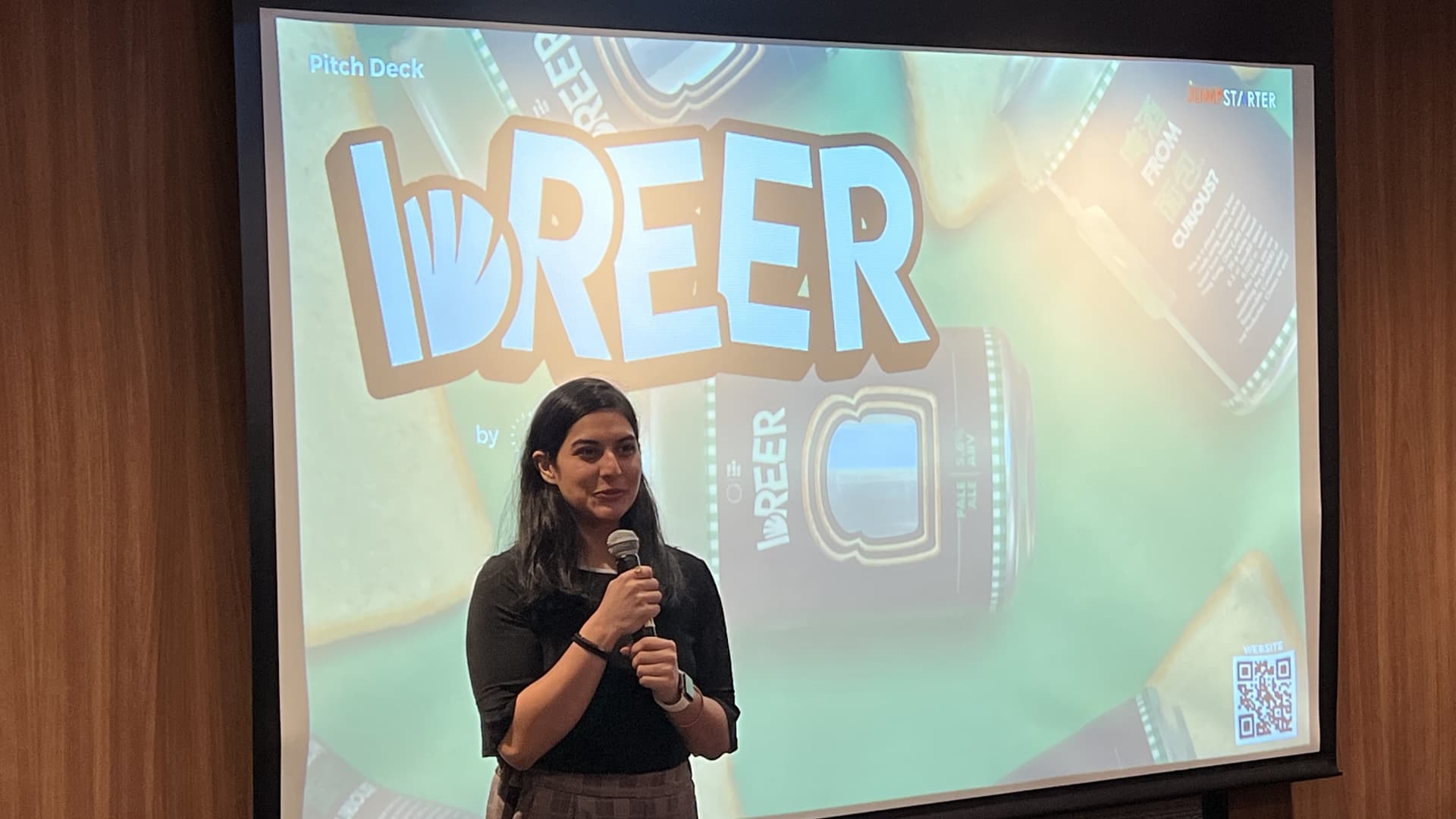When Anuksha Purohit was just 10 yrs outdated, she was appalled by the sight of a Starbucks barista throwing leftover cakes and sandwiches into the rubbish.
A 10 years later on, the memory aided encourage her to start a startup that turns surplus bread into craft beer.
“When you go to a resort breakfast buffet, they have a bread unfold. On a airplane, all people gets a slice of bread and a bottle of water. Bread is so typical and in all the meals that we have, which is why so a lot of it receives thrown out,” Purohit, now 23 years outdated, informed CNBC very last 7 days on the sidelines of the Forbes 30 Less than 30 Summit Asia in Singapore.
Purohit and 3 college classmates came up with the idea even though they ended up caught learning on the web throughout the Hong Kong protests and the city’s subsequent pandemic lockdown.
“All our mates had been consuming alcohol. So we determined to make liquor as an alternative and grow to be the interesting little ones on the block,” Purohit explained candidly.
They acquired a 1,218 Hong Kong greenback ($156) beer brewing kit on Amazon and experimented for 3 months ahead of producing a pot of beer from leftover bread.
“The beer wasn’t very good when we tried out it for the initial time, but it designed us understand this concept can work,” she said.
Beer from Hong Kong-based startup Breer is made from leftover bread and will come in flavors that pay back homage to Hong Kong’s foodstuff scene.
It took the crew about six months to nail down the flavor right before launching Breer in 2020.
Apart from a pale ale and hibiscus bitter, the organization also sells beers that function flavors like egg tart and bolo bao, or pineapple bun — an homage to Hong Kong’s vibrant food scene.
The corporation reported it built HK$2.5 million in earnings in the very last two a long time. Breer mentioned it has already hit HK$1.8 million in gross sales this yr and expects HK$1.2 million in profits.
The startup has not elevated any funding, but has won about HK$6 million via startup and entrepreneur competitions without providing absent fairness.
Abroad growth is not in the playing cards just nonetheless, and Purohit said it would only materialize if it can be completed sustainably.
“We will not likely ship exterior of Hong Kong, but would rather perform with neighborhood bakeries and breweries in its place,” Purohit mentioned. “Sustainability is not about a sacrifice. You really don’t have to stop ingesting meat or you don’t have to prevent driving your auto, you can just consume although you’re consuming but pick the far more sustainable option.”
How it is effective
Every single 12 months, every single human being in Hong Kong wastes about 71 kilograms (156 pounds) of foods.
But that provides an prospect for companies like Breer.
Breer collects leftover bread from nearby eating places, bakeries and Hong Kong-design diners recognized as cha chaan tengs for no cost. The bread is then sent to deal breweries, producing up to 4,000 to 6,000 liters of beer at the very least 6 moments a yr.

Pineapple buns, generally identified as bolo buns, are a well-liked snack in Hong Kong.
The sum of beer brewed for every session fluctuates with need, Purohit defined.
“If some thing like Covid suddenly transpires once again, demand will get hit and we’ll stop up with so a lot stock. So we’ve determined to go with the stream and brew when people acquire.”
There was even more bread waste in the course of the pandemic when stores experienced a tricky time estimating every day demand from customers.
“Food items estimation was askew. There would be demand for 15 kg of bread on Monday, but no person would close up purchasing on Tuesday and outlets will close up having extra waste,” recounted Purohit. She extra that Breer donates excess bread to the elderly and the weak, or for use as pig and chicken feed.
Ideas for young business people
Getting a young entrepreneur arrives with its have challenges, specially complications in attaining have confidence in.
When Purohit initially started out asking bakeries for leftover bread, she confronted inquiries like “you just turned of lawful drinking age, how do you even know how to brew beer?” and “how do I believe you is not going to just get the bread [for yourself]?”
But immediately after two months of persistence, the first bakery she approached gave her 2 kg of leftover bread on the affliction that she delivers back again the beer built from it.
And she did just that.

Anuksha Purohit founded Breer with a few other buddies when she was an undergraduate at the Hong Kong College of Science and Technology.
Purohit shared her suggestions for other youthful business people.
1. Be passionate about what you’re undertaking
“If you have passion and objective for a little something, the income will move. If there is certainly even an ounce of you that does not like what you are performing, you happen to be likely to come across motives or excuses not to do it.”
2. You may in no way know if you really don’t check out
“I would not be listed here had if I hadn’t taken that just one likelihood. You should absolutely just take the first step.”
3. Be watchful with your revenue
“Revenue is not the only financial commitment that you want. All the money we have attained has absent back into the enterprise.”
Don’t skip:



